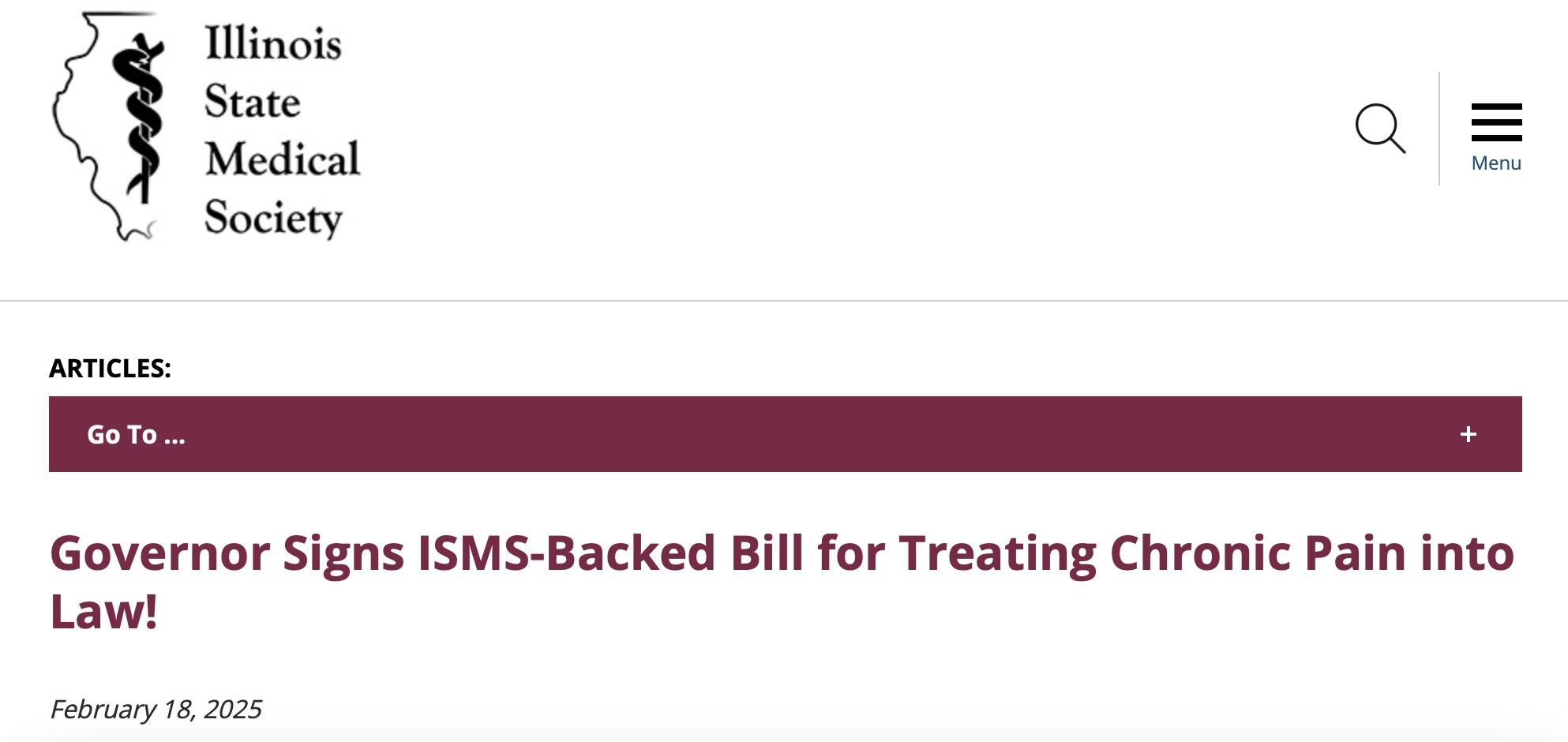Illinois's New Law Protects the Chronic Pain Community!

For the last several years, we've worked hard on protecting the disability community, including chronic pain patients and their doctors, who have been under attack by the CDC's 2016 Guidelines for Opioid Prescribing. Although those Guidelines were updated in 2022 to supposedly allow for more flexibility, they did not accomplish that and relied on a model called MME, which stands for "Morphine Milligram Equivalence," and which has no scientific basis. There were no clinical trials done to prove that one medication was equal to or stronger than another, but a special interest lobby called PROP intervened to try to force MME to be adopted as a national standard. Sadly, although the CDC Guidelines are not laws and do not require anyone to do anything, many states, insurers, doctors, and others involved in treating chronic pain interpreted them that way, and the CDC did nothing to address those issues until years later, when it finally published an article in the New England Journal of Medicine that said the Guidelines weren't intended to be hard limits.
This year, Illinois adopted HB 5373, a bill to protect chronic pain patients and the healthcare professionals who treat them. HB 5373 has given many patients and doctors breathing room and has helped a lot of patients in other states access the care they may need in Illinois. We're proud to announce that HB 5373 has been partially implemented by Washington state, and other states are adopting new laws and policies that are modeled on that bill. In fact, there has been a discussion at the federal level about using Illinois's bill as a model. We were very excited to see Pain Medicine News, one of the leading publications for pain doctors and their patients, write about Illinois's new law and the protections it offers. If you're in Illinois, make sure you have a copy of the new law, which you can find here, and it's also a good idea to bring this article to the doctor if you need to help let someone know that the law has changed to protect your doctor and you. If you don't have an account to login to Pain Medicine News, you can create one for free to read about what Illinois did, which was pretty amazing--the bill passed UNANIMOUSLY and along bipartisan lines in the five votes it had in committees and on the House and Senate floors! Thanks to everyone who helped make Illinois's new law a reality, especially Representative Kelly Cassidy, who went out of her way to make sure that the chronic pain community is protected. We'll continue to work with Rep. Cassidy and the Illinois State Medical Society, which supported the bill (you can read about that here), to create new protections for pain patients and healthcare professionals in Illinois and elsewhere. We're grateful to Governor Pritzker for signing it and for the support of many organizations, from the American Medical Association to the World Sickle Cell Federation. In addition to the new law, the administrative agencies changed their guidance, so we do not rely on MME or the CDC anymore; instead, we follow the Federation of State Medical Board's (FSMB) 2024 Guidelines for Prescribing Opioids for Chronic Pain, which are flexible, patient-centered, and protect doctors who know that some patients need opioids to treat their pain, and no doctor acting in good faith or in the legitimate course of practicing medicine should be punished for helping the pain community. The United States' Supreme Court stated in another unanimous decision, U.S. v. Ruan, that doctors who prescribe along the lines mentioned above should not be penalized, but some courts are still getting it wrong, and unfortunately, the same is true for certain law enforcement agencies. With Illinois's new law, law enforcement cannot go on a "fishing expedition," trying to find doctors who prescribe pain medicine and punishing them for that reason alone, and MME guidance is no longer in use. Way to go, team!
